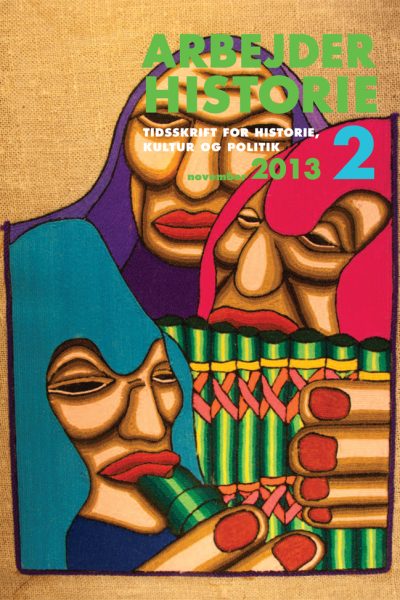'Pure and simple Unionism'
Baggrunden for den politisk neutrale amerikanske fagbevægelse, 1877-1894
DOI:
https://doi.org/10.7146/arbejderhistorie.vi2.145058Resumé
Ask Holm: ‘Pure and Simple Unionism’. Arbejderhistorie 2/2013, pp. 1-21.
In 1894, at the Convention of the American Federation of Labor (AFL), a political programme was discussed. The programme had gained initial support at the 1893 convention, but it was rejected in 1894. The AFL chose to pursue a syndicalist strategy called ‘pure and simple unionism.’ The decision made it almost impossible for a labor party to succeed without the support of the labor movement in the United States. By rejecting the political platform, the American labor movement detached itself from the development that the
rest of the labor movements in the industrialized world followed in the late eighteenth century.
The internal discord between the inclusive, political ‘Knights of Labor’ and the exclusive, syndicalist AFL didn’t create a united labor movement in the late 1880’s. ‘The Knights’ collapsed and the AFL became the dominant labor organisation. Thereafter, the syndicalist leadership, with President Samuel Gompers as the dominant figure, used a centralized power structure to navigate the AFL free of political involvement. The formation of ‘the Civic Federation of Chicago’ in the summer of 1894 gave the syndicalist leadership an alternative to the People’s Party, which otherwise would have been the platform for political involvement through a farmer-labor alliance. ‘The Civic Federation’ gave the syndicalist AFL leadership an opportunity to interact with employers outside the political system. The repression from employers and courts in the late 1880’s and early 1890’s left little room for the AFL to focus on other issues than surviving as an organization.
Downloads
Publiceret
Citation/Eksport
Nummer
Sektion
Licens
Copyright (c) 2013 SFAH og forfatterne

Dette værk er under følgende licens Creative Commons Navngivelse – Ikke-kommerciel – Ingen Bearbejdede Værker (by-nc-nd).


